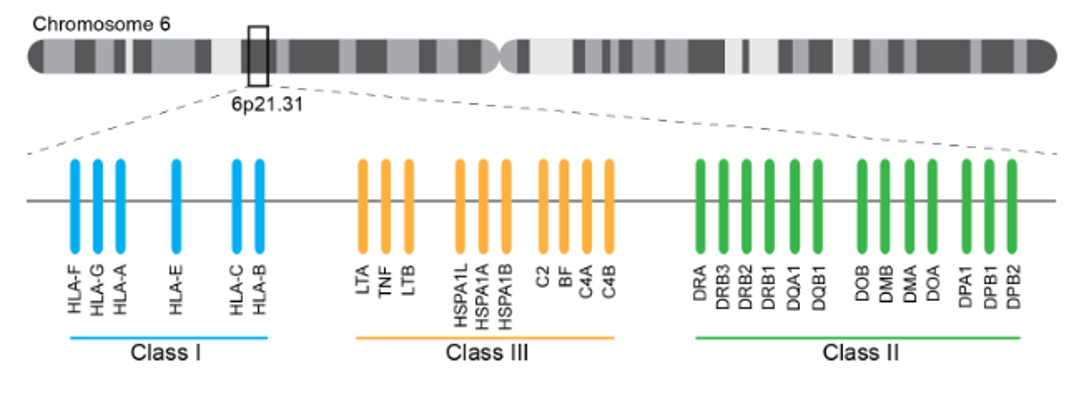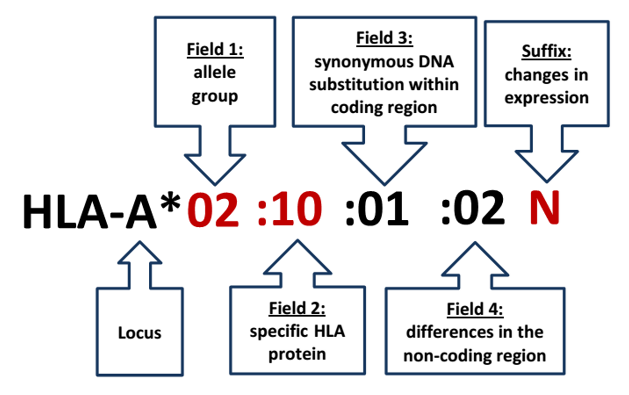Scientific HLA high-resolution typing
Introduction
The major histocompatibility complex (MHC) is a group of tightly linked genes that exhibit high polymorphism. The genes encoded by MHC are involved in antigen presentation, cell-to-cell recognition, and the induction of immune responses. The human MHC is also known as HLA (human leukocyte antigen), which is a 3.6M segment of chromosome 6p that is involved in immune responses. It is the gene complex with the highest allele polymorphism among all known genes, with dozens of loci, each with dozens of alleles. The expression of HLA genes is codominant.
HLA antigen polymorphism testing is of great significance in both medical practice and research. More than 100 diseases are related to HLA, including autoimmune diseases, immunodeficiency diseases, allergic diseases, infectious diseases, metabolic diseases, such as diabetes, rheumatoid arthritis, psoriasis, ankylosing spondylitis, myasthenia gravis, and asthma. At the same time, HLA plays a crucial role in organ and bone marrow transplantation, and is also associated with serious adverse reactions to many drugs. Therefore, HLA typing is beneficial for the research of immune-related diseases, the screening of target populations for vaccines and drugs, the study of racial evolution, and organ and organ transplantation.

HLA的三大类型:I型,II型和III型

HLA等位基因命名方法
Types of HLA
There are three types of HLA: class I, class II, and class III.
HLA allele naming methods
There are two main methods for HLA typing: serological typing and DNA typing.
1.Serological typing
Serological typing focuses on the analysis of HLA antigen specificity. It mainly uses the microlymphocyte cytotoxicity assay to analyze HLA types. Serological methods are important methods for determining HA matching and are also the international standard technology.
2.DNA typing
DNA typing focuses on the analysis of the gene itself. It is divided into two types: methods based on the recognition of nucleic acid sequences and methods based on the molecular structure of sequences. Methods based on the recognition of nucleic acid sequences mainly include: PCR-RFLP, PCR-SSO, PCR-SSP, PCR-SBT, and next-generation sequencing methods that have emerged in recent years.
Service advantages
IGEBio can provide PCR-SBT for HLA-A, HLA-B, HLA-C, HLA-DRB1, HLA-DPB1, HLA-DQA1, HLA-DQB1, and HLA-DPA1 loci for high-resolution typing.
Advantages
Accuracy: The accuracy of ordinary typing is generally 2 digits, and Aegibio's high-resolution typing can reach 4 digits.
Stability: Compared with serological and cell methods, it has better stability.
Specificity: It can be used for high-resolution typing of 8 common loci, including HLA-A, HLA-B, HLA-C, HLA-DRB1, HLA-DPB1, HLA-DQA1, HLA-DQB1, and HLA-DPA1.
Microsample: Only 106 cells or 200uL of blood are required.
Fast turnaround time: The report can be issued within 5 working days at the earliest.

